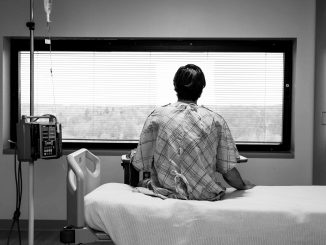
There was a quiet optimism among NSW Health and the Berejiklian government on the afternoon of Thursday, June 24. The state’s often lauded contact tracing system had, it appeared, to have triumphed against the new outbreak of the highly contagious Delta strain of COVID-19. Except for one mystery infection, it seemed that all known cases were linked. Sydney was ahead of the virus.
But by late evening, as new cases emerged and the list of potential exposure sites steadily grew, the mood shifted dramatically.
During a phone meeting between the NSW Premier, Chief Health Officer, and crisis cabinet the following evening, an unease had started to set in. The new strain of the virus was spreading at an alarming rate, and those attending the meeting knew where transmission was coming from, but they couldn’t stop it.
The first case in this outbreak had been a Bondi limousine driver who had transported international flight crews. This case, that was recorded on June 16, initially resulted in an outbreak that was mostly contained to Sydney’s eastern suburbs. But it would soon become apparent that the infection was spreading in every direction, quickly overwhelming the capacity of contact tracing teams to keep in front of it.
By the beginning of July, it seemed like the virus was beginning to win. As July ended, it was clear that it was.
Contact tracing efforts were struggling to keep up with the rapid spread of disease, with some 3,190 locally acquired cases reported since 16 June 2021. The hospital system quietly started to groan under the pressure, with 203 COVID-19 patients in hospital: 53 in intensive care; and 27 requiring ventilation.
Every new case pushed individual healthcare workers to their physical and moral limits, where they encountered ethical issues not usually experienced in everyday healthcare: These issues have been summarised as the “Three Rs”: rationing, restrictions, and responsibilities.
Healthcare workers need to allocate limited resources fairly, contend with restrictions such as isolation and quarantine, and be held responsible for the care of patients despite personal risk.
Recent research shows that this takes a toll, with moral distress levels among nurses higher during COVID than pre-pandemic.

Moral distress
Moral distress occurs when our core values are threatened or compromised; when we know what ethical action is called for yet feel powerless to take it.
In healthcare settings, moral distress can be caused by a range of external (e.g., policy guidelines or limited resources) and internal (e.g., self-doubt, fear) factors. When healthcare workers compromise their core values, they can feel shame, guilt, and even isolation. When moral distress is unresolved, healthcare workers can experience depression and other mental, emotional, and spiritual health struggles.
The experience of moral distress among healthcare providers has received growing attention during the pandemic. The nursing profession in particular anticipates a high rate of post-pandemic staff exodus, driven to a large degree by accumulated and unresolved moral distress. Studies examining moral distress in healthcare professionals have found it to be associated with intent to leave the nursing profession.
What influences moral distress?
Even before the COVID-19 pandemic, nurses were experiencing high levels of moral distress in daily clinical practice. This is now compounded during the COVID-19 pandemic.
Recently, a study conducted in the ICU of a Dutch hospital identified three key issues that significantly influenced moral distress during COVID-19: scarcity of resources, time pressure, and having to work with colleagues who were insufficiently skilled or did not demonstrate safe work practices.
The nursing profession are at the frontline of the COVID pandemic, dealing with these issues daily.
Moral distress in Sydney nurses
As the current outbreak continues to unfold in Sydney, nurses across the state are becoming fatigued and stressed. COVID wards at many hospitals are full, others are filling fast. Ambulances continue to arrive daily with new confirmed and potential COVID patients, with few beds available, many are left in crowded ED’s or on stretchers in hallways as nursing staff attempt to find somewhere to either admit or transfer them to.
The emotional state that arises from these types of situations, where nurses can feel like the ethically correct action to take is different from what they have been asked to do, or have been doing, can lead to moral distress, which subsequently can lead to nurses feeling powerless, anxious, and even depressed.
Nurses are being exposed to – and infected by – the COVID-19 coronavirus in increasing numbers. However, unlike during the second wave of pandemic in Victoria where the number of healthcare workers infected was routinely reported, the Berejiklian government has not been as forthcoming with the same information during this outbreak: and there are no publicly available national data on healthcare worker infections in Australia.
Unclear and contradictory messaging between NSW Health and individual hospitals and difficulty accessing quarantine away from home is contributing to moral distress in Sydney nurses. Anecdotally, we know that many nurses are having difficulty sleeping, anxiety and depression is rising, and burnout is rife.

What needs to be done?
Access to personal protective equipment (PPE) remains an ongoing issue – an adequate supply of appropriately sized PPE must be available 24 hours per day, 7 days per week.
The provision of transparent and timely information regarding work-based exposure and infection is fundamental to reducing distress. Some nurses across Sydney have reported waiting up to ten days following work-based exposure to be notified, only to be provided with conflicting messages from NSW Health and employers.
Limited access to hotel isolation for exposed healthcare workers also needs to be addressed, ensuring that nurses have a safe space to isolate away from loved ones.
Healthcare systems in Sydney – and indeed more broadly – need to develop a supportive ethical climate that helps restore moral resiliency, including the promotion of non-hierarchical safe spaces where nurses can share their lived experiences without fear of reprisal.
SUBSCRIBE TO THE AUSTRALIAN EMERGENCY SERVICES MAGAZINE




